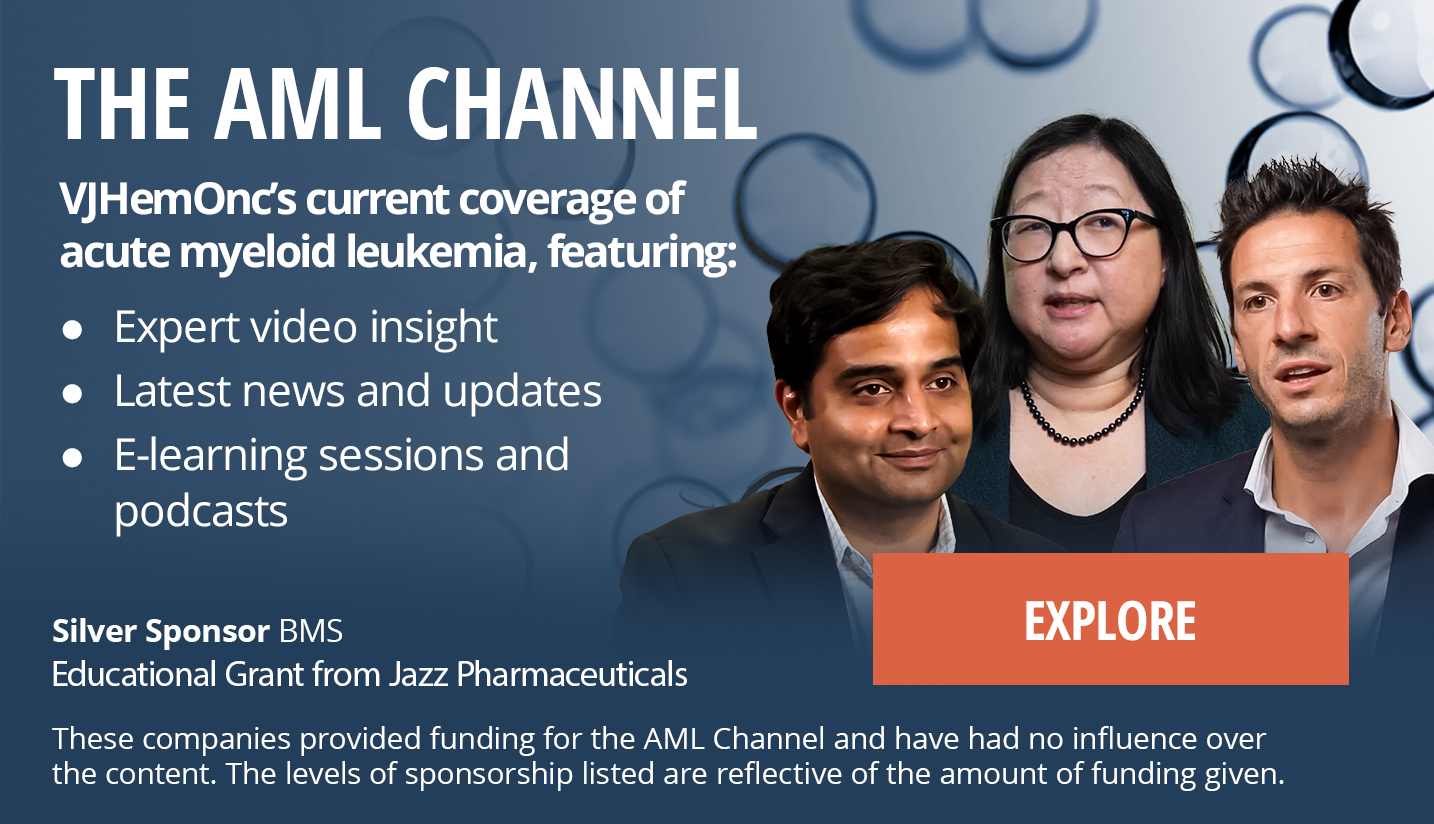Yeah, so this is a Phase II clinical trial that is single center, so we run it at the University of Colorado, and it’s given with CC-486, which is the oral formulation of azacitidine, and venetoclax. The way that we gave the trial was venetoclax was given per FDA label, so the dose escalation, and it was on 28 days. And then CC-486 was given at 300 milligrams, and it was days 1 through 14 on a 28-day cycle...
Yeah, so this is a Phase II clinical trial that is single center, so we run it at the University of Colorado, and it’s given with CC-486, which is the oral formulation of azacitidine, and venetoclax. The way that we gave the trial was venetoclax was given per FDA label, so the dose escalation, and it was on 28 days. And then CC-486 was given at 300 milligrams, and it was days 1 through 14 on a 28-day cycle. Now, we did give up to 14 days for patients for count recovery in between cycles.
So, in terms of the results, we’ve previously already reported on the relapsed/refractory cohort. So, I’ll focus on the newly diagnosed cohort today. So, that was 16 patients. They were all either adverse or intermediate-risk AML. And we had excellent responses, 56% CR/CRi rates. Now, I will say one of those patients actually had to come off study just for personal reasons, in distance, he was responding, and then after a second cycle of standard AML treatment, he got into a CR. So, it’s possible that those response rates are a little bit underestimated.
Now, what’s interesting is we had p53 mutant patients, so we had six patients who were p53 mutated. These were high-risk VAF mutations or complex karyotype and p53 mutations, and actually, we had 67% response rates for the patients with p53 mutations, so really good response rates.
We previously reported on the safety, pretty safe overall. The main AEs were nausea, vomiting, diarrhea, and fatigue, but pretty similar to conventional azacitidine and venetoclax. So, overall, really good responses, and we’re very happy with the newly diagnosed cohort.
All oral therapy, I feel like, is revolutionizing AML. The patients that have enrolled in the trial have really enjoyed being on an all oral therapy. It has less visits to the infusion center, less visits to our clinic. Some of our long-term patients that are already a year on the trial are really enjoying and traveling, so I think there’s a lot of benefits to being in an all oral regimen for a disease that we’ve really had all IV chemotherapy before, so I think it’s really powerful for patients.
This transcript is AI-generated. While we strive for accuracy, please verify this copy with the video.













